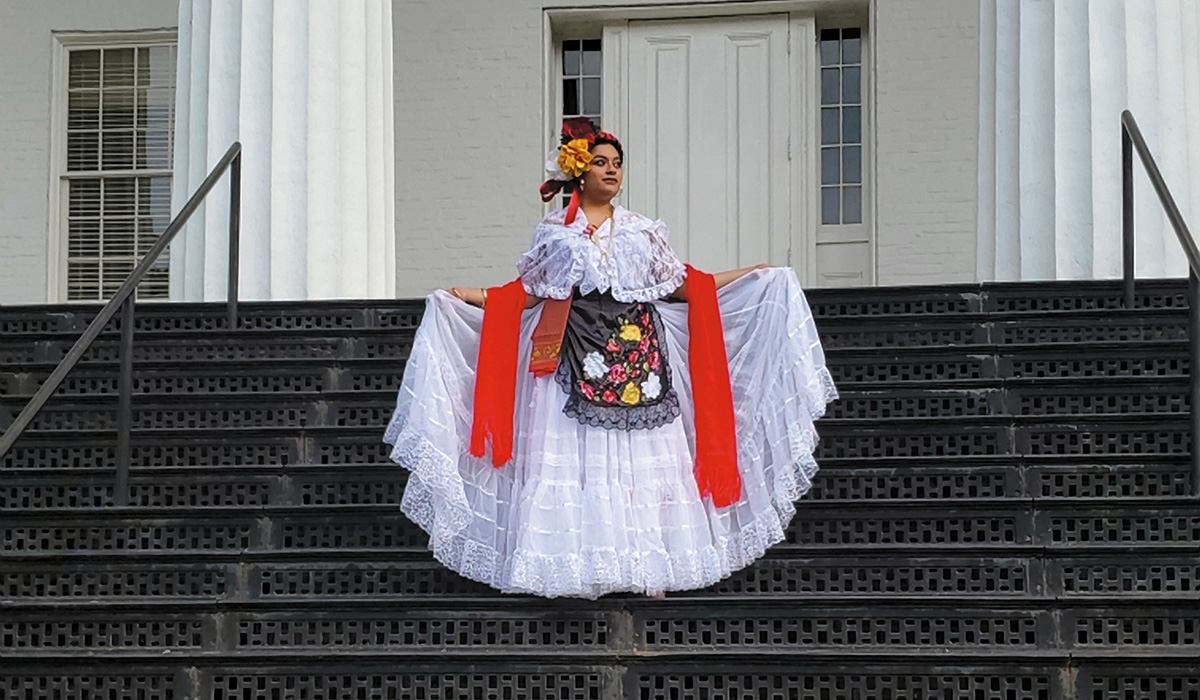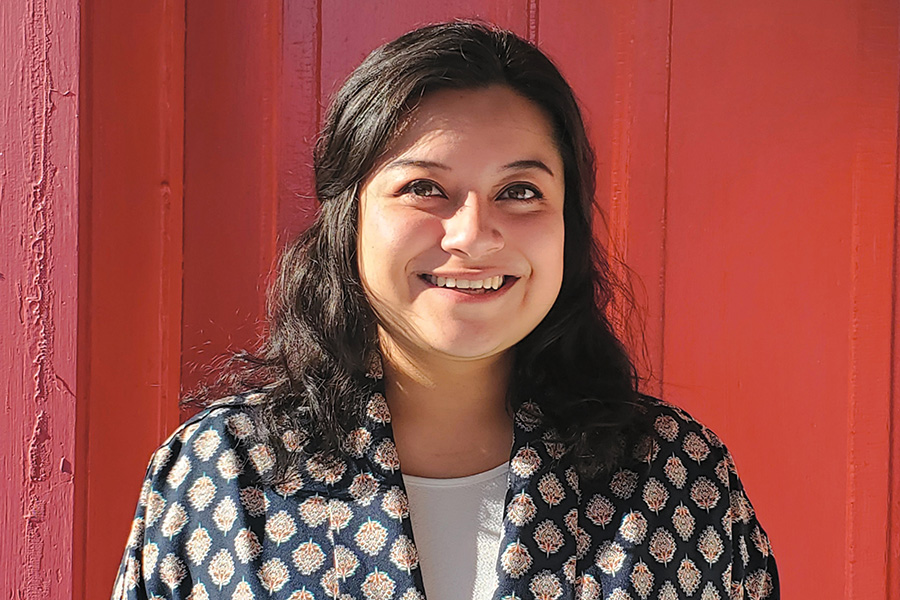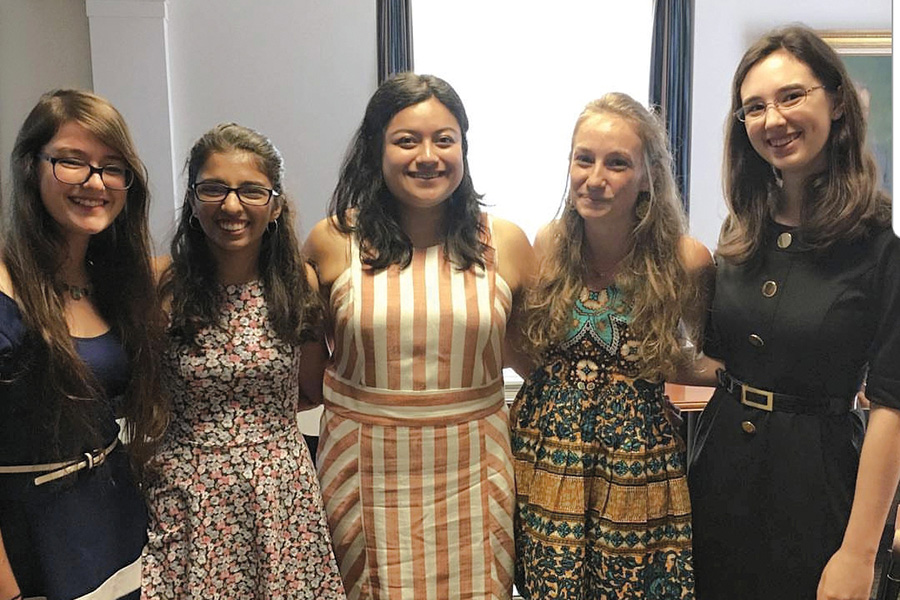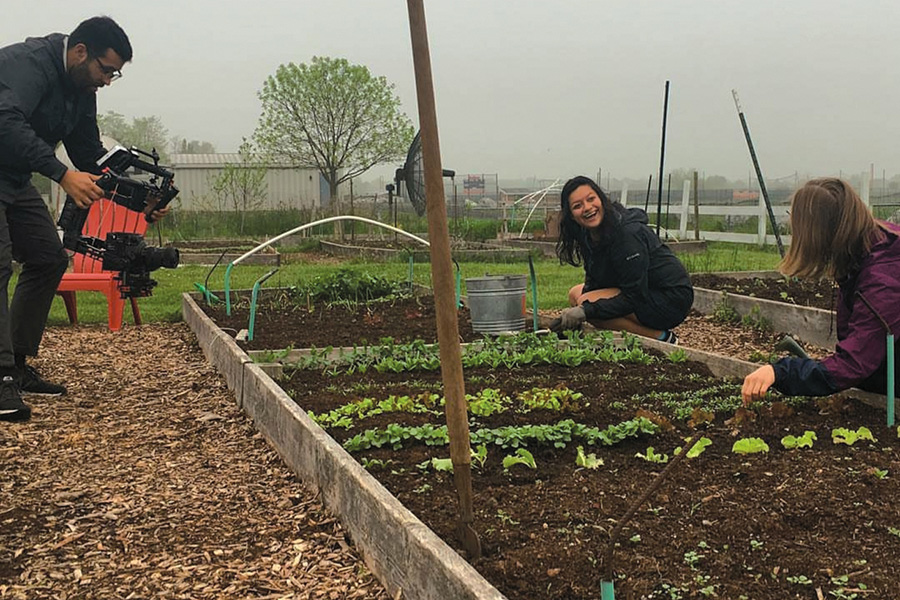
Growing up in Gettysburg, Ivana Lopez Espinosa ’19 recalls her earliest connections with the Gettysburg College community through the Painted Turtle Farm. As a teenager digging into this community-supported agricultural endeavor on campus, she learned not only about growing and eating healthy fruits and vegetables, but also how a college or university can be a steward for cultivating cultural diversity and community engagement. These formative experiences with culture and community ultimately contributed to her professional work in diversity, equity, and inclusion (DEI) in higher education.
Today, Lopez Espinosa is a social justice advocate seeking to improve the experiences of underrepresented communities in education as a project associate for the Presidents’ Alliance on Higher Education and Immigration. Her areas of focus include investigating the postsecondary pipeline for undocumented and DACA (Deferred Action for Childhood Arrivals) students and reporting on the implications of national, state, and college and university policy on undocumented and DACA individuals.
Lopez Espinosa cultivated this passion for exploring diversity in higher education at Gettysburg College, where she found a community of support inside and outside the classroom as a sociology major and music minor.
Through her First-Year Seminar at Gettysburg, You’re Not Yelping: From the Critique of Judgment to Consumer Rating Culture, taught by French Chair Caroline Ferraris-Besso, Lopez Espinosa learned about how social class, family, education, race, and other factors impact how we view aesthetics, tastes, and trends. While seeking work-study employment, she discovered a student position supporting Jeanne Arnold, Gettysburg’s inaugural chief diversity officer, who served the College from 2014 to 2021. Thanks to Lopez Espinosa’s mother, who encouraged her to apply for the position, this work-study opportunity lit the spark to fuel her educational interests and career path.
“That job led me to an opportunity to work directly with [President Emerita] Janet Morgan Riggs ’77 and meet members of the Board of Trustees. It gave me an opportunity to witness large-scale decision-making within an institution,” she said.



With the help of Sociology Prof. Alecea Standlee (see Prof Path, pg. 36), Lopez Espinosa applied for and secured a Digital Scholarship Summer Fellowship at Musselman Library that allowed her to research and document the history of diversification at Gettysburg College from its founding to the present. The research, she said, was one more link in the chain connecting her further with her interests in investigating diversity in higher education, and it led her to realize her potential to advance DEI initiatives professionally.
Tapping into the Gettysburg Network, Lopez Espinosa sought guidance from Rebecca Borovsky ’16, who helped review her graduate school application to the University of Michigan. Upon her acceptance, she deepened her understanding of her own identity, the intricacies of large-scale advocacy, and her knowledge of diversity from Gettysburg. Lopez Espinosa served as a graduate research assistant for the National Forum on Higher Education for the Public Good and a student researcher for the Ginsberg Center for Community Service and Learning.
When she graduated with a master’s degree in higher education, diversity, and social justice, Lopez Espinosa joined the university’s Matthaei Botanical Gardens and Nichols Arboretum as its first DEI manager, which gave her insight into a public institution going through large-scale change.
Together, these DEI experiences fuel her work today for the Presidents’ Alliance on Higher Education and Immigration and continued engagement with her alma mater through Gettysburg’s Alumni of Color Council. She noted she wouldn’t have gotten where she is today without Gettysburg, acknowledging Quiana Young ’10, Amanda Bazemore ’10, and Jaclynn Cross ’10 for their mentorship while serving in her DEI role at the University of Michigan and for their career advice as she transitioned into a new field.
In particular, she credits the knowledge and enduring skills she gained at Gettysburg—from leadership and creativity to quantitative and qualitative sociological research skills through coursework with faculty like Sociology Prof. Cassie M. Hays—for propelling her every day. These proficiencies help her lead conversations about undocumented communities and work with practitioners in higher education, nonprofit organizations, and for-profit companies who engage directly with undocumented students.
“It gave me the language of power and justice.”
“I learned from Gettysburg how to be a passionate, empathetic leader and how to listen,” she said. “There were many opportunities to tap into my creativity through class assignments and the Digital Scholarship Summer Fellowship. When I served as the vice president of the Latin American Student Association, I had to be creative about how to have conversations with different student groups and what was happening in the Student Senate. I was part of the Sunderman Conservatory of Music, so I had to be creative in figuring out how I was going to work, go to my music lessons and classes, and still graduate in three years.”
Ultimately, Lopez Espinosa believes that Gettysburg’s consequential education opened the door for self-exploration.
“It gave me the language of understanding institutions. It gave me the language of power and justice,” she said. “When I was working in the Office of Diversity & Inclusion, I wanted to know how students’ experiences were and how we could make them better—and I’m living that out now. I’m comfortable with who I am. I’m comfortable in my identity. Gettysburg College gave me the opportunity to see the world through a different lens, outside of myself, in a way that I didn’t know was possible.”
by Michael Vyskocil
Posted: 02/21/24